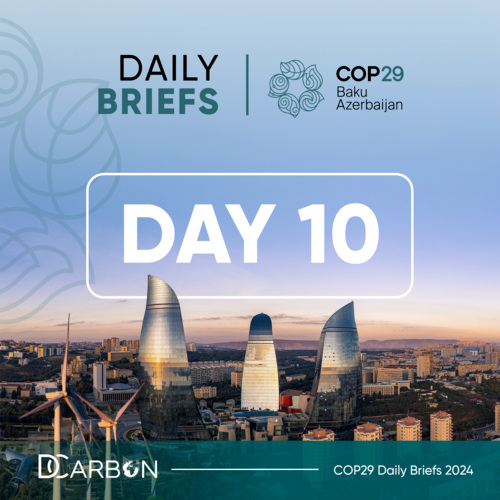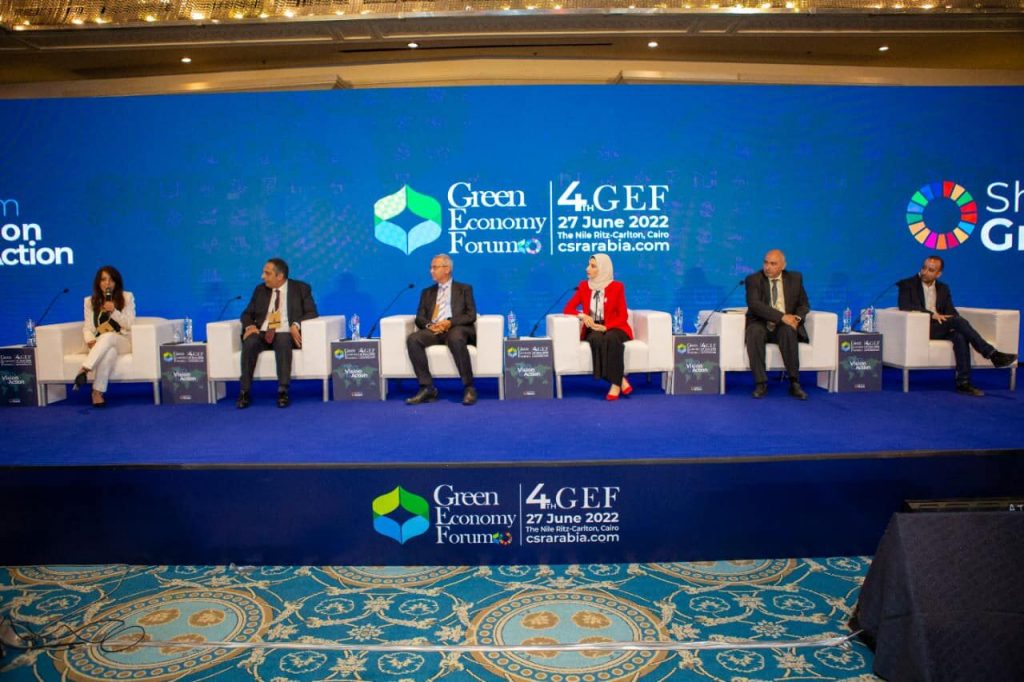Blue Zone
Empowering Women and Youth through Green Skills
The 29th session of the Conference of the Parties to the UN Framework Convention on Climate Change (COP29) focuses on the impact of climate change on disadvantaged groups, how to combat it, and how to expand their capabilities by adding green skills. These Green Skills are the skills needed to confront climate challenges. Accordingly, the event is titled “Enhancing Green Skills of Women and Youth: Building on Commonwealth Experience.” It emphasizes the impact of climate change on women and youth, and the strategies needed to empower them with green skills. The key speakers included Patricia Scotland, Secretary-General of the Commonwealth, and Nick Baker, Head of COP29 at the UK Embassy. The session, which saw participation from thirty-five attendees across twelve countries, concluded with an engaging Q&A aimed at fostering collaboration. The event, organized by the Ministry of Ecology and Natural Resources, the State Support Agency for NGOs, and Gender Hub Azerbaijan, brought together global leaders and experts.
Germany Commits €1.1 Billion Annually for Biodiversity
Germany has pledged €1.1 Billion annually from 2025 to support biodiversity as part of its climate action strategy. The commitment was announced by Steffi Lemke, Germany’s Federal Minister for the Environment, at the COP29 Global Leaders Roundtable on “Aligning Climate Action and Biodiversity Conservation for a Nature-positive Future and the Paris Agreement Goals.” Minister Lemke emphasized Germany’s continuous efforts, including the €1.36 billion allocated in 2023 for biodiversity initiatives. Furthermore, an additional €8 million will be invested through a collaboration with the European Bank for Reconstruction and Development (EBRD) to encourage private investment in nature-based solutions. Moreover, Germany is also working to integrate climate policy and nature conservation through a unified national action plan aimed at restoring ecosystems and enhancing biodiversity.
Azerbaijan Stresses the Need for Improved Transboundary Water Management
Vugar Kerimov, Azerbaijan’s Deputy Minister of Ecology and Natural Resources, emphasized the ongoing challenges of effective transboundary water management in the region during COP29. The event is held as “The Role of Climate-Informed Transboundary Water Management in Ensuring Global Resilience to Climate Change,” where Kerimov called for enhanced cross-border cooperation.
Kerimov highlighted that Azerbaijan’s water resources are dependent on shared rivers, with 70% of its water originating from transboundary sources like the Hakari, Bargushad, Okhchuchay, Kura, and Aras rivers. He underlined that pollution in upstream regions, particularly in the Okhchuchay River, presents significant ecological risks.
Although Azerbaijan has been a member of the UN Water Convention since 2000, Kerimov noted that the absence of several neighboring countries in the convention limits opportunities for effective collaboration and sustainable water management. He urged for stronger regional cooperation under international legal frameworks to ensure the fair and sustainable use of shared water resources.
The event underscored Azerbaijan’s commitment to water security and its readiness to foster collaborative solutions to transboundary water challenges. The discussions aimed at opening new pathways for regional cooperation, contributing to a more resilient and sustainable future for all involved.
UK Government Leads Efforts for Global Nature Action
The UK government is intensifying its commitment to addressing the global nature crisis at COP29, with Nature Minister Mary Creagh announcing new funding to protect oceans from the dual threats of climate change and biodiversity loss. The UK revealed twenty new projects funded by the Ocean Community Empowerment and Nature (OCEAN) Grants Programme, designed to improve marine ecosystems and support coastal communities around the world.
Minister Creagh stressed the urgent need for action, highlighting the ocean’s triple threat from global warming, pollution, and acidification. With over three billion people relying on healthy oceans, she emphasized that these projects would help build resilience in some of the world’s most climate-vulnerable regions. Ruth Davis, the UK’s first Special Representative for Nature, joined Creagh in urging simultaneous action on both the nature and climate crises. She called for greater global cooperation to secure a sustainable future for the planet.
The OCEAN projects will focus on marine ecosystem restoration and poverty reduction in thirteen countries across five continents, including Bangladesh, Mozambique, and Papua New Guinea. This initiative builds on the UK’s recent commitments made at the UN Biodiversity COP16 conference, further establishing the country’s leadership in global conservation efforts.
Lack of Clarity on Climate Finance Sparks Concerns at COP29
The climate finance discussions at COP29 have drawn widespread criticism, with developing nations demanding over $1 trillion in funding for climate action, while wealthy countries have yet to commit to specific contributions. The absence of a clear financial pledge has led to frustration, with EU Climate Commissioner Wopke Hoekstra calling the lack of ambition “unacceptable” and urging the COP29 Presidency to demonstrate stronger leadership.
Sources close to the COP29 Presidency indicate that a breakthrough may be imminent, but key issues, including financing, remain unresolved. There are also concerns regarding the draft mitigation text, with some fearing a step back from the transition away from fossil fuels, a key outcome of COP28. UK Energy Secretary Ed Miliband warned that any reversal in climate progress would be harshly judged by the global community.
Brazil Advocates for Forest Conservation and Climate Action at COP29
During COP29’s Nature and Biodiversity Day, Brazil’s Minister of Environment and Climate Change, Marina Silva, addressed the High-Level Event on Forests for Climate, Nature, and People. Silva shed light on the pivotal role of intact forests in mitigating climate change and promoting a just transition. She outlined Brazil’s ambitious Nationally Determined Contribution (NDC) to reduce emissions by 67% by 2035 and shared the country’s success in curbing deforestation in the Amazon, with a 45.7% reduction last year, preventing 400 million tons of CO2 emissions.
Additionally, Silva introduced the Tropical Forest Forever Facility (TFFF), a new initiative designed to attract private and sovereign investments to support forest conservation. Looking ahead to Brazil’s role in hosting COP30, she called for deeper integration of forest and nature conservation into global climate and biodiversity frameworks to ensure a sustainable future.
Azerbaijan Calls for Integrated Action on Climate, Nature, and Biodiversity
At COP29’s third high-level RioTrio event, Azerbaijan’s Minister of Ecology and Natural Resources, Umayra Taghiyeva, emphasized the need for constructive collaboration among global environmental frameworks, focusing on the roles of Indigenous communities, gender equality, and sustainable land management. Taghiyeva stressed the importance of the collaboration across the Rio Conventions represented in the United Nations Framework Convention on Climate Change (UNFCCC), the Convention on Biological Diversity (CBD), and the UN Convention to Combat Desertification (UNCCD) to tackle climate change, biodiversity loss, and land degradation. She advocated harmonizing data-sharing systems to enhance the tracking of progress in climate action, biodiversity conservation, and land restoration. Minister Taghiyeva also underscored the need to incorporate Indigenous knowledge into global strategies, acknowledging their essential role in safeguarding ecosystems. In closing, she urged delegates to adopt integrated solutions, reinforcing the idea that achieving the SDGs requires cross-sector collaboration.
Kazakhstan Proposes Carbon Farming Initiative at COP29
Kazakhstan declared an initiative to promote carbon farming to reduce carbon emissions and ensure sustainable agricultural practices. Mansur Oshurbayev, Kazakhstan’s Deputy Minister of Ecology and Natural Resources, highlighted the potential of carbon farming in advancing climate objectives while maintaining agricultural sustainability. Murat Temirjanov, Chairman of Kazakhstan’s Land Resources Management Committee, stressed that modern technology and robust legislative support are essential for the success of this initiative. Experts at the side event emphasized Kazakhstan’s leadership potential in carbon farming, which could modernize the agricultural sector and generate numerous employment opportunities.
Reinforcing Indigenous Peoples’ Role in Climate Action
Baku Workplan was adopted, along with the renewal of the Facilitative Working Group (FWG) mandate for the Local Communities and Indigenous Peoples Platform (LCIPP) as a decisive step to elevate the voices of Indigenous Peoples and local communities in climate action. This work plan emphasizes focusing on knowledge exchange, capacity building, and integrating diverse values into climate policies. The FWG’s mandate renewal also addresses barriers to participation, such as language challenges, and introduces staggered membership terms to ensure continuity. The implementation will be gender-responsive and collaborative, with a review of progress scheduled for 2027. This move reinforces the leadership of Indigenous Peoples and local communities in shaping effective climate solutions.
Green Zone
The Green Zone activities at COP29 today stressed on a collective commitment to innovation, equity, and collaboration. From significant financial pledges to inspiring grassroots initiatives, the day provided a glimpse into the multifaceted approach needed to thwart the climate crisis efficiently. Ensuring the solutions discussed are scaled and implemented globally, leaving no one behind remains the major spotlight at COP29.
Innovations and Technologies promote Climate Resilience
Promoting cutting-edge technologies and their application prompt enhancing resilience to climate impacts. Key highlights included. This is one of the major themes of COP29 in the Green Zone. One of the sessions was “The Climate Technology and Innovation for Resilience Building Session” that highlighted the tools for addressing climate risks, including AI-driven early warning systems for natural disasters and smart agricultural practices to enhance food security in vulnerable regions. A recurring message was the need for inclusive adoption of these innovations, ensuring benefits reach developing nations. “Resilience is not an option but a necessity,” stated Dr. Ana Velasquez, a lead researcher in climate adaptation technologies.
“The AI Innovation Grand Challenge Awards” was the title of an event that identified pioneering projects that leverage artificial intelligence to tackle pressing climate issues. The winners included a project that developed predictive analytics for managing water scarcity in dry regions and another focused on optimizing renewable energy storage systems.
Financial Commitments and Collaborative Partnerships
Financial pledges and the launch of strategic partnerships were announced today.
Resilient Planet Initiative: This initiative, backed by $300 million in funding from a coalition of philanthropic organizations and private-sector leaders, aims to democratize access to climate finance. The initiative focuses on empowering Indigenous communities and local governments to implement nature-based solutions. “Equity must underpin our financial systems if we want true climate justice,” remarked a representative from the Global Environment Facility.
Scaling Private Capital for Renewables: A dedicated session examined how private investments can accelerate renewable energy adoption in developing economies. CEOs of leading financial institutions discussed blended financing models that combine public and private resources to de-risk investments in clean energy transitions. Innovative Insurance Mechanisms: A panel on unlocking capital highlighted the crucial role of the insurance industry in catalyzing funding for climate adaptation projects. A pilot program was demonstrated to provide microinsurance to smallholder farmers in Africa, helping them to quickly recover from climate-induced crop losses.
Youth and Local Community Leadership
Young climate advocates and local communities were amongst the major highlights today, demonstrating how grassroots action can drive transformative change:
“Youth-Led Solutions” were panels that featured youth leaders from different backgrounds presenting community-driven projects, such as mangrove restoration initiatives in Southeast Asia and waste-to-energy programs in Latin America. These projects were hailed as scalable models for other regions. “Young voices are not just the future; they are leading the charge today,” said Maria T., a youth delegate from the Pacific Islands.
The “Indigenous Knowledge Integration” panel demonstrated success stories of combining traditional ecological knowledge with modern technology to manage ecosystems sustainably sharing the narrative of Indigenous leaders. Their involvement in designing adaptation strategies was celebrated as a critical step toward inclusive governance.
Spotlight on Green Businesses
The role of small and medium enterprises (SMEs) in achieving climate goals was amongst the major themes of the Green Businesses tackled in the Green Zone today:
The Panel on SMEs and a Green Economy highlighted how SMEs are driving sustainability through innovations in sectors like renewable energy, circular economies, and sustainable agriculture. Governments pledged to provide policy support and subsidies to enable these businesses to thrive while reducing emissions.
The Green Investment Announcements embarked on several private investors and venture capital firms committing over $200 million to support startups focused on low-carbon technologies and sustainable supply chains.
Cultural and Artistic Contributions
Artistic and cultural initiatives played a unique role in connecting audiences to the emotional dimensions of the climate crisis:
Art Installations and Performances: Climate-themed art installations depicted the stark realities of global warming, while performances by artists from vulnerable regions brought to life the human cost of climate inaction. “Art speaks where words fail,” said a curator, emphasizing the role of creative expression in fostering climate awareness.
Film and Storytelling for Climate Action: A special session explored the power of storytelling in mobilizing climate action. Filmmakers shared their experiences crafting narratives inspiring behavioural change and holding leaders accountable.
Key Financial Highlights
Over $500 million in total commitments, spanning renewable energy, climate resilience, and grassroots initiatives.
$300 million was directed toward the Resilient Planet Initiative for inclusive adaptation solutions.
$200 million allocated by venture capital firms to support sustainable businesses.
References:
https://en.trend.az/azerbaijan/politics/3973858.html
https://www.gov.uk/government/news/uk-government-drives-nature-up-the-agenda-at-cop29
https://www.azernews.az/business/234208.html
https://www.azernews.az/business/234208.html
https://events.climateaction.org/sustainable-innovation-forum/about
https://www.climateaction.org/news/what-to-expect-at-cop29-resilient-and-healthy-cities1
https://www.climateaction.org/news/countdown-to-cop29-raising-ambition-for-the-finance-cop
https://unfccc.int/cop29https://www.un.org/en/climatechange/cop29





